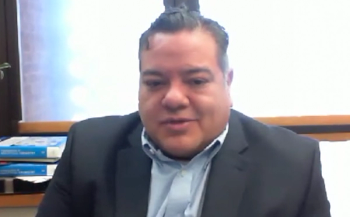
MS-Based Device May Help Surgeons Identify Cancerous Tissue Faster
A device based on mass spectrometry could help surgeons identify cancerous tissue during surgical procedures, according to a study published in Angewandte Chemie German Chemical Society.
A device based on mass spectrometry could help surgeons identify cancerous tissue during surgical procedures, according to a study published in Angewandte Chemie (German Chemical Society.)
The technique, developed by a team of Hungarian and German scientists, could help surgeons know when a tumor has been completely removed in under a second.
Currently, while a patient is under anesthesia, surgeons will remove a tumor and then send pieces of healthy surrounding tissue for histological analysis to determine if all the cancer was removed, repeating the process during the same surgical session if the results are found to be positive.
Dr. Zoltan Takats, PhD, a chemist at the Justus Liebeg University in Giessen, Germany, and his team have developed a device that utilizes rapid evaporative ionization mass spectrometry (REIMS). It will analyze ions given off by tumors as they are burned off during surgery. They are then analyzed by a program that runs them against a tumor database, and rather than having the results in the traditional 30 to 40 minutes, a surgeon can reportedly have them in under one second.
For more information, and to see the original research,
Newsletter
Get essential updates on the latest spectroscopy technologies, regulatory standards, and best practices—subscribe today to Spectroscopy.




